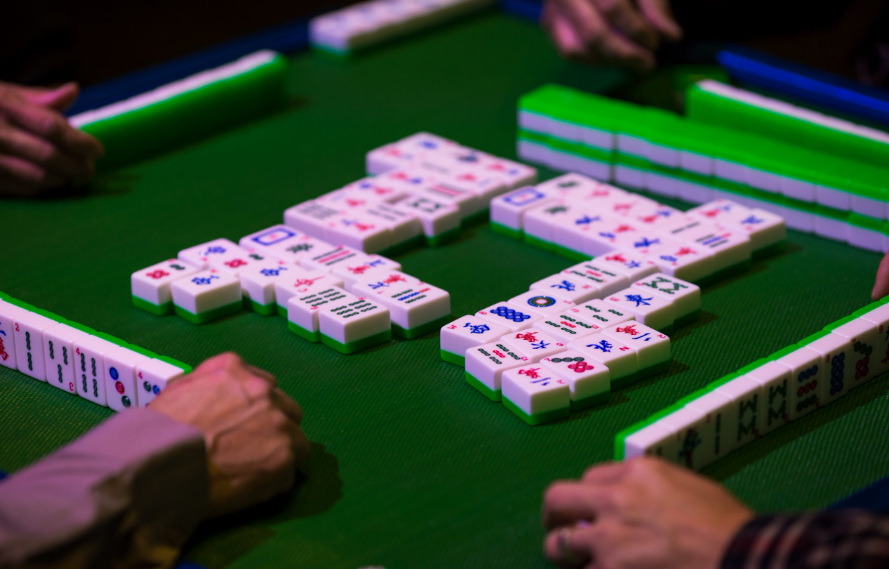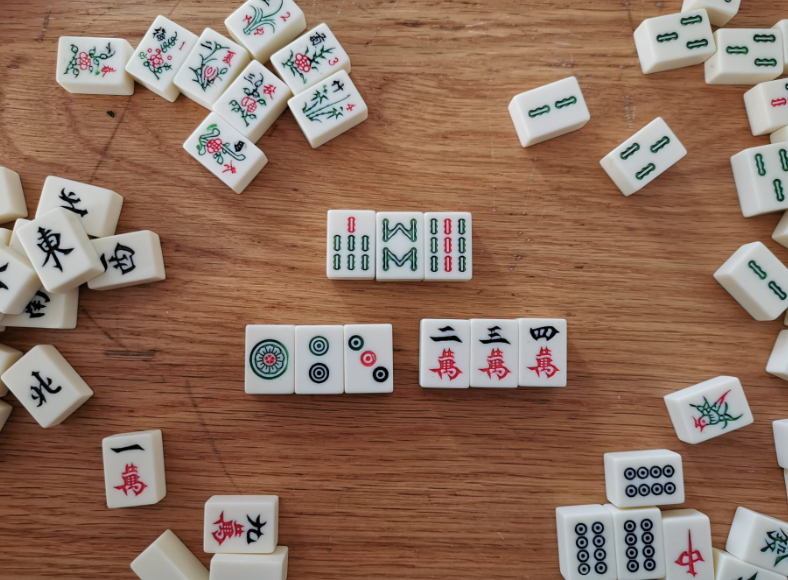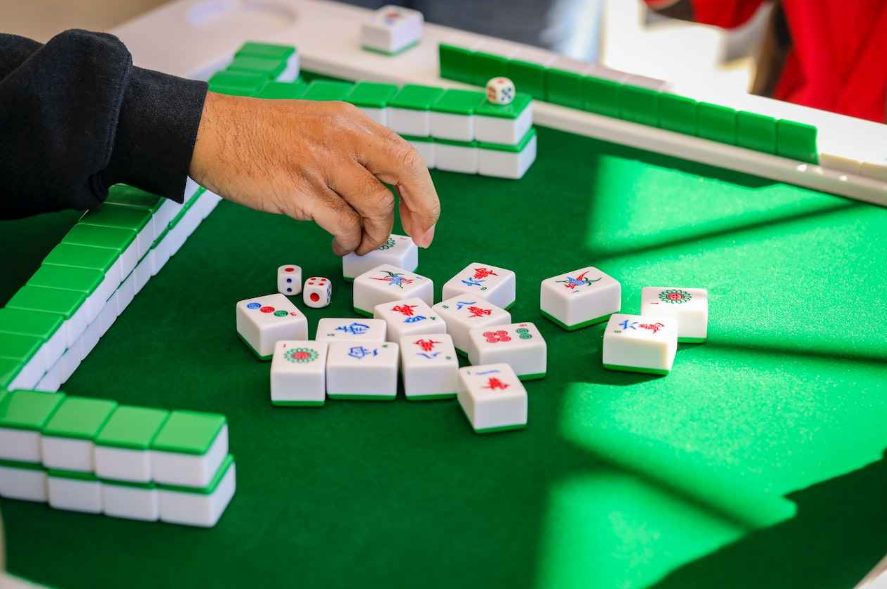Mahjong: Getting Started
Mahjong is a popular game that originated in China and is played with tiles. Getting started with Mahjong can be an exciting and enjoyable experience for beginners. The game may seem intimidating at first with its complex rules and strategies, but with practice and patience, players can quickly get the hang of it. To begin, players must familiarize themselves with the various types of tiles used in the game, which include suits, honor tiles, and flowers.
Understanding the value and significance of each tile is essential for successful gameplay. Additionally, players must learn the basic rules of Mahjong, such as drawing and discarding tiles, forming sets and pairs, and declaring Mahjong. As players gain more experience, they can start to develop their own strategies and techniques to improve their chances of winning. Overall, getting started with Mahjong is a fun and rewarding journey that can lead to many hours of entertainment and enjoyment.

Understanding the Tiles
Understanding the concept of tiles is essential for anyone who wants to navigate through the complexities of the tile industry. Tiles come in a variety of shapes, sizes, and materials, each serving a different purpose and aesthetic. From ceramic to porcelain, glass to stone, tiles can transform a space and add a touch of elegance and style.
It is crucial to understand the differences between these materials and their respective properties to make informed decisions when selecting tiles for a project. Additionally, understanding the various installation techniques and tools required for laying tiles is key to ensuring a successful outcome. Whether you are a homeowner looking to renovate your kitchen or a contractor working on a commercial project, having a solid understanding of tiles will help you achieve the desired results.
Furthermore, understanding the maintenance and care required for different types of tiles is important to ensure their longevity and beauty. By understanding the intricacies of tiles, you can make informed choices that will not only enhance the aesthetic appeal of a space but also increase its functionality and value. Ultimately, the more you know about tiles, the better equipped you will be to create stunning and durable designs that stand the test of time.
Beginning a Round
Beginning a round in any competition or game is a crucial moment that sets the tone for the rest of the match. It is important for players to approach this moment with focus, determination, and a clear strategy in mind. Starting strong can give a team or individual a psychological advantage over their opponents and build momentum that can carry them through to victory.
Whether it is a sport, a debate, or a performance, the way in which a round is initiated can have a significant impact on the outcome. It is essential for participants to be mentally prepared and physically ready to give their best effort from the very beginning. This can involve visualizing success, setting goals, and maintaining a positive attitude.
Additionally, having a plan in place for how to execute their skills or tactics effectively can help players feel more confident and in control. By approaching the start of a round with intention and purpose, competitors can set themselves up for success and increase their chances of achieving their desired outcome.
Ultimately, beginning a round is about laying the foundation for what is to come and establishing a strong presence that can propel individuals or teams towards victory. It is a critical moment that requires focus, determination, and preparation in order to maximize one’s potential and put themselves in the best position to succeed.

Engaging in Gameplay
Engaging in gameplay can be a fun and enjoyable activity for people of all ages. Whether it’s playing video games, board games, or sports, gameplay allows individuals to immerse themselves in a different world and challenge themselves in new ways. It can be a great way to relax and unwind after a long day, as well as a way to socialize and connect with others.
Engaging in gameplay can also help improve cognitive skills such as problem-solving, critical thinking, and strategic planning. By engaging in gameplay, individuals can enhance their creativity and imagination, as well as develop a sense of camaraderie and teamwork with others.
Additionally, gameplay can provide a sense of accomplishment and satisfaction when goals are achieved or challenges are overcome. Overall, engaging in gameplay can be a positive and enriching experience that brings joy and excitement to people’s lives.
Victory and Points
Victory and points are two key elements in any competitive endeavor. Victory is the ultimate goal, the sweet taste of success that drives individuals and teams to push themselves to their limits. Points, on the other hand, are the incremental measures of progress towards that goal. They serve as both a motivator and a marker of achievement, rewarding effort, skill, and strategy.
In sports, points are scored through various means such as goals, touchdowns, or baskets, depending on the specific rules of the game. In other competitive arenas, points may be awarded for meeting certain criteria or achieving specific objectives. The accumulation of points can be a thrilling journey, with the final outcome often determined by the smallest margins. Whether in a high-stakes championship game or a friendly competition among friends, the pursuit of victory and points can be exhilarating and intense.
The thrill of victory and the satisfaction of earning points can fuel a sense of accomplishment and drive individuals to continue striving for excellence. In the end, victory and points are not just about winning or losing, but about the journey of growth, improvement, and self-discovery that comes with the pursuit of success.

Strategizing Your Moves
When it comes to strategizing your moves, it is important to think ahead and consider all possible outcomes. Planning your next steps can help you achieve your goals and navigate complex situations with ease. By carefully analyzing the situation and thinking critically about your options, you can make informed decisions that will benefit you in the long run.
It is essential to stay open-minded and flexible, as sometimes unexpected opportunities or obstacles may arise. By being adaptable and prepared for any scenario, you can stay ahead of the game and outmaneuver your competitors. Additionally, it is crucial to communicate effectively with others and collaborate with teammates or allies to achieve common objectives. Working together towards a shared goal can increase your chances of success and create a stronger, more cohesive team.
Remember that strategizing your moves is not just about making plans, but also about executing them with precision and confidence. By staying focused, motivated, and proactive, you can overcome challenges and reach your desired outcomes. In conclusion, strategizing your moves is a skill that requires careful consideration, creativity, and perseverance. By honing this skill and applying it to various aspects of your life, you can maximize your potential and achieve your goals with confidence and success.
Calculating Scores and Bonuses
Calculating scores and bonuses is a crucial aspect of many competitive activities, such as sports, games, and business competitions. The process involves assessing performance and assigning numerical values based on predetermined criteria. Scores can be calculated through a variety of methods, including adding up points for correct answers, timing performance, or evaluating subjective criteria such as creativity or style.
Bonuses are often awarded for exceptional performance or achieving certain milestones, providing an additional incentive for participants to strive for excellence. While the specific rules for calculating scores and bonuses may vary depending on the activity, the overall goal is to fairly and accurately assess performance and reward individuals for their achievements. This process can be both challenging and rewarding, requiring a keen eye for detail and a thorough understanding of the criteria for evaluation.
Additionally, calculating scores and bonuses can help motivate participants to put forth their best effort and continually improve their skills. Overall, the process of calculating scores and bonuses is an essential component of competitive activities, ensuring that individuals are recognized and rewarded for their hard work and dedication.
